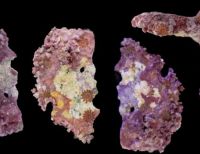An international team, led by researchers from Australia, have developed a system using nanotechnology that could allow people with diabetes to take oral insulin in the future. The researchers say the new insulin could be eaten by taking a tablet or even embedded within a piece of chocolate.
The new nano carrier, tested in mice, rats and baboon animal models, could help people with diabetes avoid side-effects linked to insulin injections such as hypoglycemia (a low blood sugar event, when too much insulin has been injected).
These animal studies have shown that the greatest strength of the nano-scale material is that it can react to the body’s blood sugar levels. The coating dissolves and releases the insulin when there is a high concentration of blood sugar and importantly does not release the insulin in low blood sugar environments.
The new oral insulin uses a type of nano-scale material that is 1/10,000th the width of a human hair. The material acts similarly to acid resistant coating on tablets, which protects it from being destroyed by stomach acid. But this new coating instead surrounds individual insulin molecules and becomes a ‘nano carrier’ – acting like a courier to ferry insulin molecules in the body to the places it needs to act.
The findings are published in Nature Nanotechnology.
















